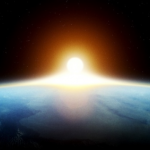catastrophe
Great disasters are great stories, great moments in time, great tests of technology, humanity, society, government, and luck. Fifty years ago it was probably true to say that our understanding of great disasters was thin, not well developed because of the relative infrequency of the events, and not very useful, not knowledge that we could use to reduce the risks from such events.
This is no longer true. The last several decades has seen climate science add more climatic data because of decades of careful instrumental data collection happening, but also, earlier decades have been added to…
FuturePundit points me to a new paper on the Toba explosion, Environmental impact of the 73 ka Toba super-eruption in South Asia:
The cooling effects of historic volcanic eruptions on world climate are well known but the impacts of even bigger prehistoric eruptions are still shrouded in mystery. The eruption of Toba volcano in northern Sumatra some 73,000 years ago was the largest explosive eruption of the past two million years, with a Volcanic Explosivity Index of magnitude 8, but its impact on climate has been controversial. In order to resolve this issue, we have analysed pollen from a…
Let's say we're having a nice day here on Earth; the Sun is shining, the clouds are sparse, and everything is just looking like a peach:
And then Lucas goes and tells me,
Oh my God, Ethan! It's Armageddon! An asteroid is coming straight for us! You've got to stop it!
Really? Me? Well, how would I do it? Let's say we've got some reasonably good asteroid tracking going on, and we've got about 2 months before the asteroid is actually going to hit us. We'd like to do something with the situation on the left, to avoid the situation on the right:
Well, what we really have to do is change the…

